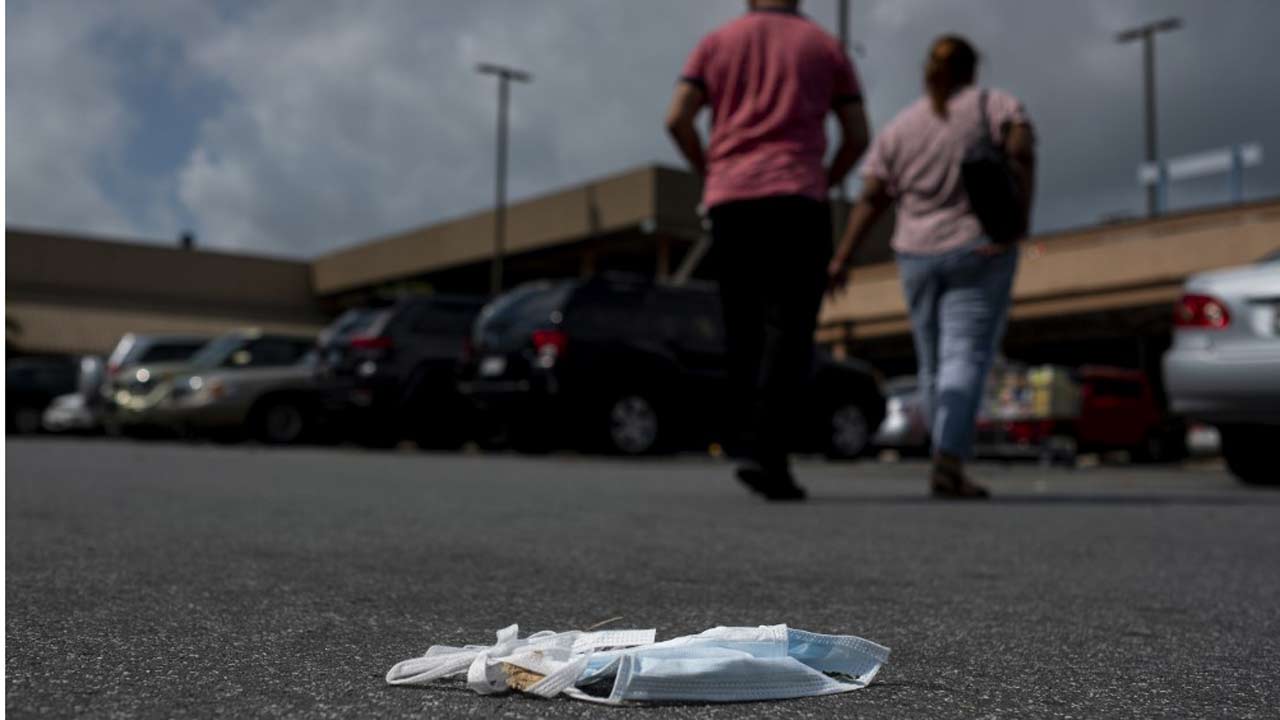
The statistics globally are scary and Africa, Nigeria inclusive, is not immune to the coronavirus pandemic. At present, globally, over 1,363,123 persons had tested positive for COVID-19. Of this number, 992,907 are currently infected patients, with 47,702 of them categorized as serious or critical; 293,833 of the patients have been discharged, and 76,383 dead.
But as Nigerians are coming to terms with the pandemic, many residents now move around with facemasks and hand gloves of different categories. There are now facemasks made with different garments. In addition, the prices of the items have gone up by over 100 per cent.
Before now, a hand-glove sold for N50, today it is sold for N200, while two facemasks that cost N50 in the past, is now sold for N200. This has forced many citizens to economize, by reusing the items, which experts say have negative implication of users contracting or spreading the virus, especially if not properly reused or thrown away.
Providing an update on efforts by Lagos State to contain the spread of coronavirus during the week, the Commissioner for Health, Prof. Akin Abayomi, stated that if not for proactive efforts on the part of the state government, which made it to put up a strategy that included case identification, isolation, contact tracing and community ownership, the positive cases in Lagos alone would have gone up to 40,000.
This, he said, is why residents must own the process by taking necessary precautionary measures, practice social distancing, wash their hands with soap, report suspected cases among others. The commissioner noted that weeks after Lagos has its index case on March 18, the state was experiencing local transmission, especially as new confirmed cases with travel history moved from 82 per cent to 55 per cent between Week 4 and 5 while new confirmed cases with no travel history between Week 4 and 5moved from 18 per cent to 45 per cent.
The Guardian approached Solomon Abiona around Mile 2 area of Amuwo-Odofin in Lagos. He was fully kitted with hand gloves and facemask. Asked to provide where he bought the protective gears, and who recommended its use for him, he revealed he bought them in traffic with no medical officer recommending it to him. He claimed he saw people wearing them to prevent contacting coronavirus and he decided to buy them too.
Another resident, Fatima Akubo said she only wear facemasks, which are discarded when dirty or felt the need not to reuse them. According to her, the facemask is worn for at least two days. Akubo said she does not wear the hand glove because it causes her palm to sweat, which makes her uncomfortable, reason she prefers using hand sanitiser every 15 minutes.
Also speaking, Joan Rasanwo, said she has been wearing the blue facemasks and latex surgical gloves, majorly when going out to a place she suspects might have a gathering of more than 10 persons. “I wear the waterproof side facing outwards. I had no medical recommendations to using it. I watched YouTube videos on how to wear them and stayed glued to World Health Organisation (WHO) site.”
A medical doctor, Akintayo Adebayo, noted that facemasks and hand gloves are classified as Personal Protective Equipment (PPEs) in medical practice, basically to prevent spread of infections. Adebayo said there are established rules and regulations for usage of PPEs, because inappropriate use of PPEs can become vehicles for transmission of infections. “Particularly, when certain processes and procedures are not followed before wearing PPEs, after PPEs are wore, and during removal PPEs after use.”
The medical doctor further stated that there is also the risk of transmission of infections in the community when used PPEs are not properly discarded as a medical waste. “Specifically, usage of PPEs is essentially for healthcare workers and certain categories of sick persons in the hospital environment. Persons who have respiratory symptoms or infections; cough, colds, catarrh, sneezing among others can use facemasks to prevent spread of infections to other persons.”
According to Adebayo, there are different types of masks, with some specifically designed for different purposes. This, he said is why usage of face or nose masks must be prescribed for by enlightened medical professionals.
“The current rave in the usage of masks in the community has been occasioned by ignorance due to COVID-19 pandemic. But unfortunately, people have been using these masks inappropriately, which can invariably promote community transmission of infections if generated medical wastes are not properly managed. Not everyone needs a mask.”
He maintained that the only correct way to wear a mask is for the brightly coloured side must be facing outside. He further said that it is equally important to look for expiry dates in all items, noting that in buying any of these items prevention is better and cheaper than cure. He added that expired hand gloves and facemasks might not provide the expected protection after expiration date.
Adebayo recommended that hand washing with soap and water should be highly promoted, while the use of alcohol-based hand sanitisers should also be encouraged.
The Ministry of Environment was contacted to speak on how it is managing the waste from the rising use of facemasks and hand gloves in Lagos. The Public Relations Officer of the ministry said it was the Lagos State Waste Management Authority (LAWMA) that has the capacity to speak on the issue since it manages medical waste in the state.
As a result, LAWMA was contacted, but the Public Relations Officer of the agency did not pick her calls and she did not respond to the message sent to her Whatsapp platform.



